
Fast, affordable Internet access for all.

Fiber to the Home
Construction on a new city-owned fiber network in Cabot, Arkansas will soon bring affordable broadband access to every city resident and business in the state’s “Strawberry Capital.”
The network comes courtesy of a partnership with Connect2First, the broadband subsidiary of local power company First Electric Cooperative Corporation, which continues to build on its significant presence across Arkansas.

According to a city announcement, the $20 million network will deliver fiber access at symmetrical speeds of up to 10 gigabit per second (Gbps) via an XGS-PON network passing all 26,000 residents and businesses of Cabot using 220 miles of fiber.
The network, which is expected to take several years to complete, will be built on the back of resident-approved bonds, and won’t utilize state or federal funding.
Construction has already begun in this suburb of Little Rock where city officials say hundreds of residents have already been connected.
In announcing the beginning of construction, Cabot Mayor Ken Kincade said:
“This unique project is the first of its kind in the state of Arkansas where a municipality has built its own fiber network and partnered with a local ISP to provide high speed fiber optic internet services to its constituents. The City of Cabot is thrilled to be able to leverage the proven expertise of Connect2First, who already had a presence in the city and was currently serving surrounding areas.”
Joplin, Missouri has announced a new broadband public-private partnership (PPP) with ALLO Fiber that should help boost competition and lower rates across the city of 52,000. The partnership poses a particular challenge to regional cable giant CableOne, which currently enjoys a monopoly over broadband access across a whopping 83 percent of the city.
Outside of a $5 million city contribution to harden key city infrastructure, the network will be entirely built, funded, owned and operated by ALLO.
The origins of the project extend back to 2019, when the city first began exploring efforts to modernize Joplin infrastructure under a “smart city” initiative. By 2021 the city had hired Finley Engineering and CCG Consulting to conduct a feasibility study exploring the technical and financial details of a city-owned fiber network.
Fed up by expensive and substandard broadband access and buoyed by public support, in 2022 the city issued a request for proposal (RFP) for a partner that would help build such a network. The city received nine responses to the RFP. Last month, the Joplin City Council approved an ordinance by a vote of 8-1 selecting ALLO as the city’s primary partner.
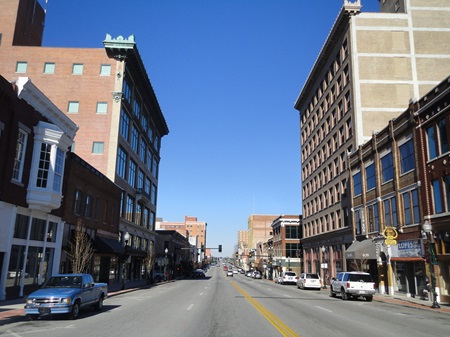
“ALLO really stood out because they were coming to our market without asking us for any assistance,” Troy Bolander, Joplin’s head of Planning, Development & Neighborhood Services, recently told Fierce Network.
TBB11 marked an exciting development for the Tribal Broadband Bootcamps.
For this latest and newest iteration, TBB co-founder Matt Rantanen graciously permitted TBB to make a permanent fiber ring installation on his property, RantanenTown Ranch, last month. While TBB will continue to host bootcamps in partnership with Tribes in different regions of North America, the launch of this permanent broadband practice arena allows TBB to chart a new path towards even more in-depth and hands-on training.
Here is a photo-filled look at the many days of prep and three days of immersive programming that went into making it happen.
“Just the fact that we saw the fiber model in its open aspect with all the drama and issues right in front of us; my friends is the best learning methodology!” – TBB 11 Attendee
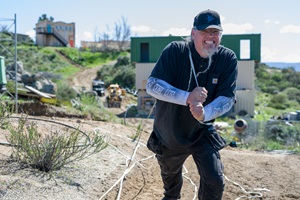
Ready or Not
Of course, building an entire, operating fiber network across RantanenTown Ranch was a massive undertaking that involved a lot of prep work.
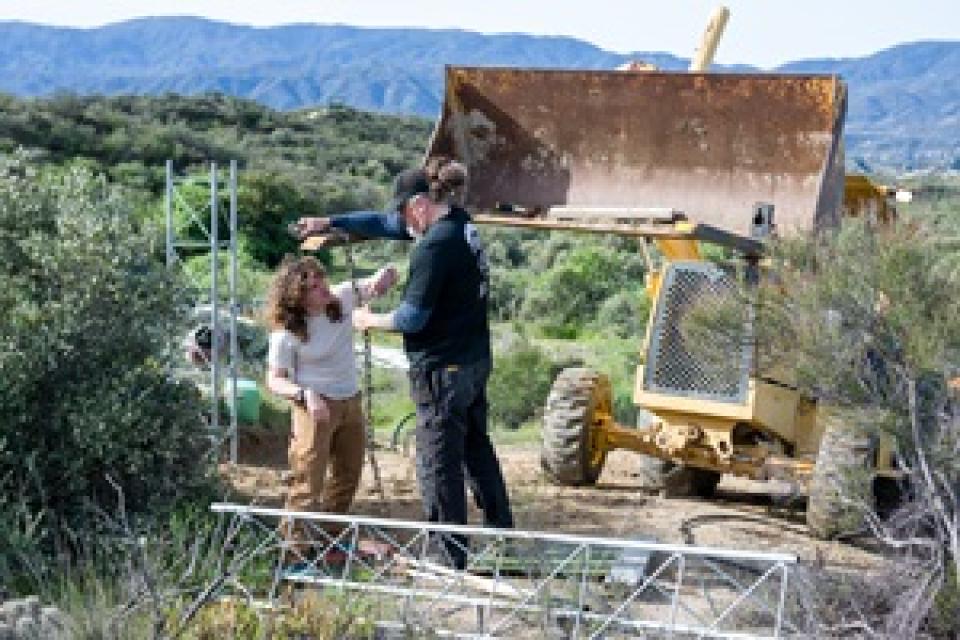
The city-owned utility in Chicopee, Massachusetts has adopted the “fiberhood” approach to broadband deployment as it expands affordable access to city residents under the Crossroads Fiber brand.
Frustrated by a lack of affordable broadband access, the city tabbed Magellan Advisors in 2015 to conduct a feasibility study into city-provided broadband access. After a survey showed a majority of city residents would support such an initiative, Chicopee Electric Light launched Crossroads Fiber in the summer of 2019 in a small pilot area.
Since then, the utility has been expanding access steadily to the rest of the city – joining a growing roster of city-owned utilities that are responding to broadband market failure by taking matters into their own hands.
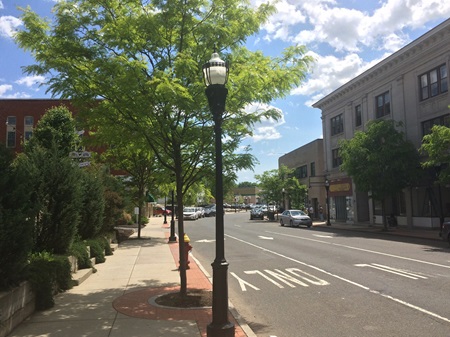
Planners have broken down the city into 144 different fiberhoods, where user interest gleaned from the project website dictates which parts of the city see deployment priority. It’s an approach some communities adopt to finance network construction without having to rely on tax revenues or loans. For Chicopee the estimated cost to build a fiber network that reaches all 55,000 residents is between $30 and $35 million.
With Big Telecom’s assault-on-competition campaign as loud (and misleading) as ever, a small municipal broadband utility in Massachusetts is quietly showcasing one of the many reasons why building publicly-owned, locally controlled broadband infrastructure is gaining in popularity, racking up awards, and earning high subscriber satisfaction rates in communities across the nation.
With an eye on keeping local dollars close to home for community investments, last week the Westfield City Council voted to approve an $11.1 million bond for a new athletic track and field at the local high school, thanks to the success of Westfield Gas & Electric’s broadband subsidiary Whip City Fiber. And though the return on investment may not be as eye-popping as the $2.7 billion Chattanooga's municipal network, EPB Fiber, has reaped in Tennessee, Westfield officials hailed the community investment as a “huge moment” for local residents.
A new $4 million project funded by the Appalachian Regional Commission (ARC) and the U.S. Economic Development Administration will help bring affordable fiber broadband to long underserved parts of West Virginia.
The project primarily targets the rural counties of Randolph and Tucker, long stuck on the wrong side of the digital divide.
The RFP for the open access middle- and last-mile file project was issued last summer, seeking partners to help maintain the network and manage access leases in partnership with the Woodlands Development Group (WDG), which will own the finished network.
“The Route 33 Broadband Deployment Project will deploy backbone fiber from Elkins along Route 33 through Bowden, north to Harman, up to Canaan Valley, and ending in Davis, establishing last-mile broadband access to 40 businesses, and enabling future last-mile projects to serve at minimum 480 households and 25 additional businesses located within 1,000 ft of the backbone fiber,” the RFP states.
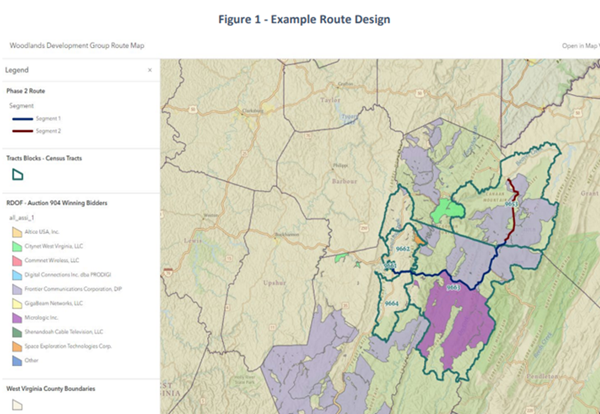
WDG, a 501(c)(3), had already been awarded a $1.7 million grant laying the foundation of the effort courtesy of 2021 COVID relief legislation (courtesy of the American Rescue Plan Act). The remainder of the $4 million project will be funded by the Appalachian Regional Commission and the U.S. Economic Development Administration.
Since it first broke ground in 2014, Longmont, Colorado’s community-owned NextLight fiber network has won numerous awards and inspired countless communities nationwide.
With its citywide deployment nearing completion, and counterproductive state legal restrictions in the rear view mirror, city leaders are now working to expand the network beyond city limits.
City officials tell ILSR that network construction has now crossed north of Colorado Highway 66, outside of city limits and into the Anhawa and Strawberry Circle neighborhoods. The extension will bring service to around 125 homes that previously had access to Longmont electrical utility service, but not broadband.
Longmont officials say this latest expansion is being financed entirely by subscriber revenues and money set aside for capital projects, with no bonding or other supplementary funds involved.
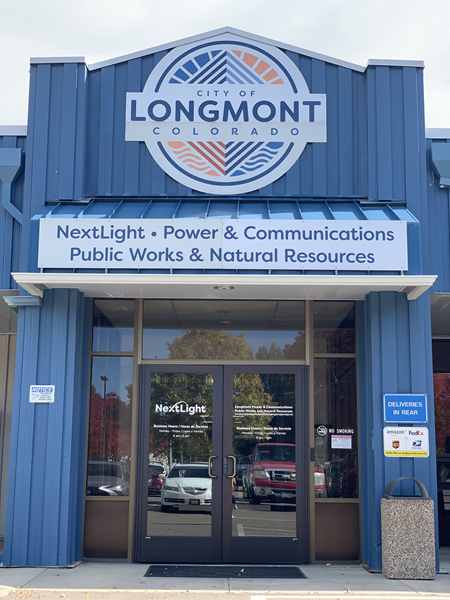
“We’ve been carefully evaluating our opportunities for expansion in order to make best use of the community’s resources,” NextLight’s Scott Rochat told ILSR. “Our total investment in this project is just under $300,000; based on our typical rate of adoption, we expect to see about a five-year payback. This also has the benefit of giving us a foothold on the north side of (Highway) 66 to help facilitate more expansion in the future.”
West Springfield residents recently gathered to break ground on a plan to deliver affordable fiber access to all 28,000 city residents. The effort, first conceived in 2021 during the height of the pandemic, involves working with Westfield Gas and Electric's broadband subsidiary Whip City Fiber to deliver symmetrical gigabit fiber.
Whip City only currently offers residential customers one tier of service: symmetrical gigabit fiber for $75 a month. A recent OpenVault report found that the percentage of subscribers on gigabit speed tiers grew 29 percent last year, with one-third of subscribers now provisioned for gigabit speeds. Whip City users can also access phone service for an additional $20 a month.
The first subscribers should be lit up for service by the end of this year, officials say. It’s the culmination of a project that began in 2019 when city officials first considered the construction of a city-owned broadband network; emboldened in 2020 after city leaders and locals alike became frustrated by Comcast’s implementation of technically unnecessary and punitive usage caps.
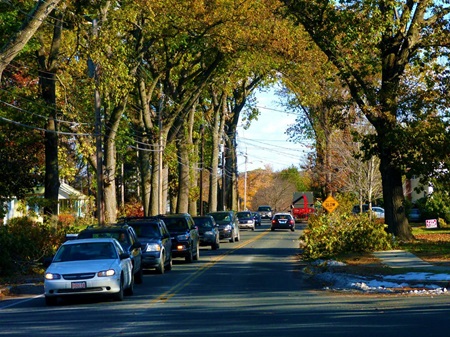
In 2021 West Springfield voted to establish a public utility department tasked with creating a town-owned fiber-optic cable network. They urged locals to sign up for a $1.5 million pilot program in four local neighborhoods, and submitted applications to Verizon and Eversource to ensure access to utility poles to begin “make ready” fiber attachment preparations.
Selma, Alabama – and parts of 16 other communities in eight different counties – will soon be connected to a new, $230 million open access fiber network that aims to bring affordable broadband to historically marginalized sections of the Yellowhammer State.
The deployment comes courtesy of a public private partnership (PPP) the city has struck with Meridiam Infrastructure and Meridiam-owned YellowHammer IT, an agreement that will expand fiber access across Alabama’s Black Belt region on the back of a $5.1 million Capital Projects Fund (CPF) grant.
At a March 2 press conference, Selma Mayor James Perkins Jr. said the partnership with Meridiam and Yellowhammer should result in fiber access being deployed to 85 percent of city homes and businesses, regardless of residents’ income levels, with $45 million of the $230 million investment dedicated to bring fiber service to Selma, the “Queen City of the Black Belt.”
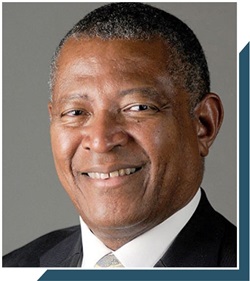
“High-speed reliable broadband is no longer nice to have. Today, it’s as important as gas, water, and electricity,” Perkins stated at the event. “In our increasingly digital society, cities without access to fiber broadband risk falling behind. It’s critical that the City of Selma makes fiber broadband accessible citywide by building utility-like infrastructure that serves our residents’ needs today and for generations to come.”
A new documentary, produced by the Vermont production company Well Told Films and the Vermont Community Broadband Board (VCBB), tells the uplifting story of how community-minded Vermonters came together to solve a common challenge: the lack of high-speed Internet connectivity across the Green Mountain State.
“Connected: Vermont’s Grassroots Effort for Rural Broadband” recently premiered at the Capitol Theater in Montpelier, giving viewers a front-row seat at how hundreds of volunteers (and later state leaders) rallied around the emergence of Communications Union Districts (CUDs) as the state's primary vehicle to bring high-quality Internet service to every resident and business in one of the most rural states in the nation.
The 35-minute film brings to life the story of how a community-based solution to solving the digital divide in Vermont came to be, while showcasing all of the progress that's been made since ECFiber, the state's first CUD, was established in 2007.
It begins with the celebration of ECFiber completing its fiber-to-the-home (FTTH) network last year, an event at which U.S. Sen. Peter Welch succinctly summarized why the community broadband movement in Vermont was, and is, necessary:
"All this started with what at the time was really a radical idea – that if we in rural Vermont were going to depend on the big telecommunication companies to wire our homes to get us Internet, we'd be waiting until our grandchildren had grandchildren."